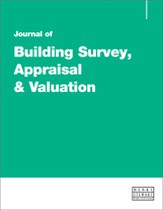Remediation in fire safety: Not as straightforward as it seems
Abstract
Since the loss of 72 lives in the Grenfell Tower fire on 14th June, 2017, many questions have been asked within the construction, fire consultancy and legal industries about their respective relationship to fire safety in buildings. It is clear that it is not just the owners of a building that are responsible for upholding fire safety, and ‘ignorance is not bliss’ when it comes to complying with fire safety obligations. Any duty holder, whether they are owners, occupiers, managers or tenants of a building that is involved in a refurbishment, installation design or construction, has to understand what being a duty holder means. The general enforcement of fire safety could see huge fines loosely based on the Health and Safety Sentencing Guidelines, which were introduced in the UK in 2016. While the guidelines do not directly apply to fire safety cases, this situation may change post a ‘Grenfell prosecution’ (which we are likely to see in the near future) in order to reflect that fire safety should be dealt with just as seriously as health and safety in the UK. It is not enough to simply remediate after an incident; the risk of harm or injury in the event of a fire should be dealt with on a preventative and proactive basis. This paper explores the legal ramifications of the Grenfell fire and other similar catastrophic events, who the duty holders are, the impact of sentencing guidelines on corporate and individual duty holders and what this could all mean for future fire safety investigations and prosecutions.
The full article is available to subscribers to the journal.
Author's Biography
Kizzy Augustin is a health, safety and environment partner at Russell Cooke Solicitors. She is a solicitor advocate with Higher Rights of Audience. She has significant experience in defending companies, senior directors and employees in corporate manslaughter and serious fire/health and safety prosecutions. Kizzy has a particular interest in the law relating to directors’ health and safety duties and health and safety issues within the construction, care homes, environmental, manufacturing, fire, rail and retail industries. She is on the Executive Committee of the London Health and Safety Group (part of Safety Groups UK) and is a member of the Health and Safety Lawyers Association, as well as being a regular keynote speaker for the Institute of Occupational Safety and Health (IOSH) and the Fire Industry Association (FIA).
Citation
Augustin, Kizzy (2019, September 1). Remediation in fire safety: Not as straightforward as it seems. In the Journal of Building Survey, Appraisal & Valuation, Volume 8, Issue 2. https://doi.org/10.69554/NCJY6565.Publications LLP
